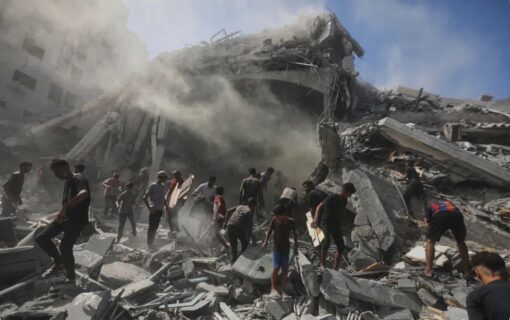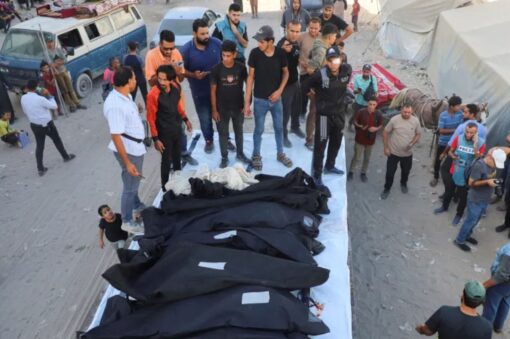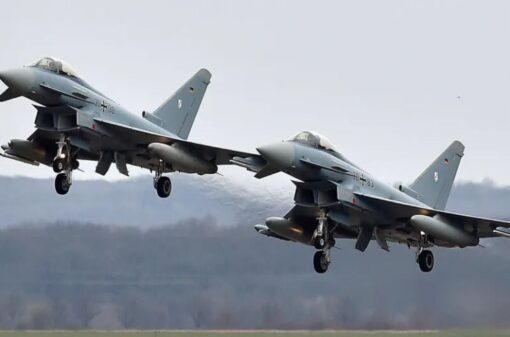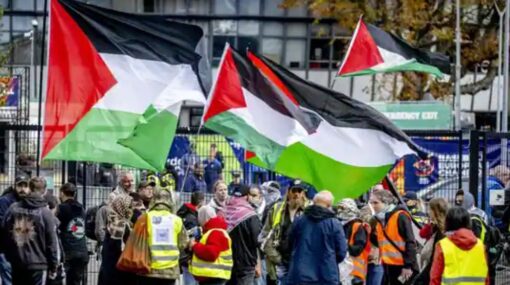Gaza City, September 21, 2025 — An Israeli airstrike early this morning devastated the Sabra neighborhood of Gaza City, resulting in the deaths of at least 25 members of the Dugmosh family. The attack targeted a group of homes, causing widespread destruction and leaving many residents trapped under the rubble.
According to local medics, the airstrike occurred in the early hours of Sunday, as Israeli warplanes intensified their bombardment across the besieged enclave. The Dugmosh family, known for their close-knit community and resilience, were among the many civilians affected by the ongoing conflict.
Footage from the scene shows emergency responders and family members frantically searching through the debris, hoping to find survivors. One heart-wrenching video captures a mother crying out in anguish, lamenting the loss of all her children in the attack.
Palestinian authorities fear that the death toll may rise, as many individuals remain unaccounted for and rescue operations continue. The Sabra neighborhood has been a focal point of Israeli military operations in recent weeks, with tanks advancing into the area as part of a broader strategy to dismantle Hamas strongholds.
The Dugmosh family’s tragic loss underscores the severe humanitarian crisis unfolding in Gaza City. Over the past 23 months, the conflict has claimed the lives of more than 65,000 Palestinians, with widespread famine and the destruction of much of Gaza’s infrastructure.
The United Nations has reported that 90% of the population has been displaced, and essential services are near collapse.
International reactions to the escalating violence have been mixed. Several Western nations, including the United Kingdom, Canada, and Australia, have formally recognized the state of Palestine, signaling a shift in diplomatic alignments ahead of a United Nations General Assembly meeting.
However, Israel has dismissed these recognitions as threats to its security and rewards for terrorism.
In response to the mounting casualties and destruction, a coalition of over 60 Jewish and Arab peace organizations in Israel has called for an immediate ceasefire and the recognition of a Palestinian state. The coalition argues that continued violence is unsustainable and that a political solution is urgently needed to end the conflict.
Meanwhile, families of hostages held in Gaza have organized protests, demanding a deal to end the war and secure the return of the captives.
The Israeli military claims that its offensive aims to pressure Hamas into releasing hostages, but humanitarian organizations warn that the ongoing attacks are exacerbating the crisis and hindering efforts to deliver aid.
As the situation in Gaza City continues to deteriorate, the international community faces increasing pressure to intervene and address the humanitarian emergency. The Dugmosh family’s loss is a stark reminder of the human cost of the conflict and the urgent need for a lasting peace.

The Israeli military has not yet responded to requests for comment regarding the Sabra neighborhood airstrike. However, previous statements have emphasized the necessity of military operations to dismantle Hamas infrastructure and protect Israeli citizens.
Critics argue that these operations disproportionately affect civilians and violate international humanitarian law.
As rescue efforts continue in the rubble of the Sabra neighborhood, the international community watches closely, hoping for a resolution that can bring an end to the suffering of the Palestinian people and pave the way for a just and lasting peace in the region.
Humanitarian organizations operating in Gaza have expressed alarm at the scale of civilian casualties, describing the attack on the Dugmosh family as emblematic of the broader crisis engulfing the city.
“We are witnessing a level of devastation that surpasses previous incidents,” said Dr. Layla Hammoud, director of the Gaza Emergency Relief Agency. “Entire neighborhoods are being reduced to rubble, and families who have lived here for generations are being displaced in a matter of hours.”
Local hospitals, already overwhelmed by months of sustained conflict, are struggling to cope with the influx of wounded civilians. “We do not have enough medical supplies or personnel to treat everyone,” explained Dr. Ahmad Salim, chief surgeon at Shifa Hospital.
“Our staff are working around the clock, but the situation is dire. Every time an airstrike occurs, the burden on healthcare facilities multiplies exponentially.”
International human rights groups have called for independent investigations into the airstrike. Amnesty International’s Middle East director, Philip Luther, condemned the attack, stating, “the targeting of residential areas and the resulting mass civilian casualties may constitute a violation of international humanitarian law. It is imperative that accountability mechanisms are strengthened to prevent further tragedies like this.”
The psychological toll on survivors is also immense. Aid workers report that children in Sabra are exhibiting severe trauma, with many unable to return to schools that have been destroyed or are being used as temporary shelters.
“We are seeing unprecedented levels of anxiety and distress among children,” noted Fatima Al-Khatib, a child psychologist working with displaced families. “The loss of multiple family members in one strike leaves deep scars that will last generations.”
Economic consequences are compounding the humanitarian crisis. Markets, shops, and businesses in Gaza City have been decimated, leaving families without income and increasing dependency on humanitarian aid.
“The destruction of homes is only one part of the problem,” said Omar Rashed, a local economist. “With livelihoods destroyed, entire communities face the prospect of long-term poverty and instability.”
Despite the devastation, there are reports of local volunteers continuing rescue operations amid ongoing bombardments. Residents armed with little more than shovels and sheer determination are working tirelessly to pull survivors from the rubble. “We cannot wait for external help,” said Ahmed Dugmosh, a distant cousin of the victims. “Our family is gone, but we must try to save whoever we can.”
Diplomatic efforts are underway to curb the violence. Several Arab League members have called for urgent talks with both Israeli and Palestinian leaders to broker a temporary ceasefire, emphasizing the importance of protecting civilians.
Meanwhile, the United Nations Relief and Works Agency (UNRWA) has warned that if airstrikes continue, tens of thousands more could be rendered homeless in the coming weeks.
Political analysts have noted that attacks on densely populated neighborhoods like Sabra carry significant implications for regional stability.
“These incidents are not isolated,” said Dr. Nabil Hassan, a professor of Middle Eastern politics. “They fuel anger, perpetuate cycles of retaliation, and complicate efforts for a negotiated peace. International actors must step in before the situation deteriorates further.”
Relatives of the Dugmosh family, many of whom have sought refuge in temporary shelters, describe the loss as unimaginable.
“We are shattered,” said Mariam Dugmosh, a surviving cousin. “We have lost parents, siblings, and children all at once. How can one family endure such pain? We demand the world see what is happening here.”
Amid international outrage, some voices have emphasized the need for nuanced approaches to the conflict. “Condemnation alone is not enough,” argued Israeli human rights advocate Yael Cohen. “We need structured dialogue and humanitarian corridors to ensure that civilians can live without fear, while addressing legitimate security concerns on all sides.”
Humanitarian corridors remain a contentious issue, with both Israeli authorities and Hamas citing security threats as reasons to limit movement.
Aid organizations continue to negotiate access, but supplies are insufficient to meet the urgent needs of displaced families. “Water, food, and medical supplies are critically low,” stated UNRWA spokesperson Marwan Toubasi. “Every day counts for those trapped without assistance.”
The impact of the airstrike on the Dugmosh family resonates beyond Gaza City. Diaspora communities worldwide have expressed solidarity, organizing fundraising campaigns to support survivors and calling for international intervention.
“Our families’ pain cannot be ignored,” said Rami Dugmosh, a family member based in Europe. “We appeal to governments, human rights bodies, and ordinary people to stand with Gaza.”

In Gaza City, residents brace for continued operations as the Israeli military maintains that its strikes target militant infrastructure.
Yet, local eyewitnesses insist that civilian homes have been disproportionately affected. “We are caught between rockets and rubble,” said Salah Abu Nassar, a resident of Sabra. “We want peace, but every day brings new fear and uncertainty.”
The attack on the Dugmosh family has sparked renewed debate over the rules of engagement in urban warfare.
International law experts highlight the obligation to distinguish between military targets and civilians, noting that repeated incidents in residential areas demand thorough scrutiny.
“The principle of proportionality is central to international humanitarian law,” said Professor Rana Shadid, a legal scholar. “Failing to uphold it endangers innocent lives and undermines the credibility of any military operation.”
As Gaza City continues to reel from the destruction, humanitarian organizations, local leaders, and international bodies call for urgent measures to prevent further loss of life.
The Dugmosh family tragedy serves as a grim reminder of the human toll of conflict and the pressing need for sustainable solutions. “We cannot allow such devastation to become routine,” emphasized Dr. Hammoud. “Every family lost is a failure of the global community to protect human life.”


